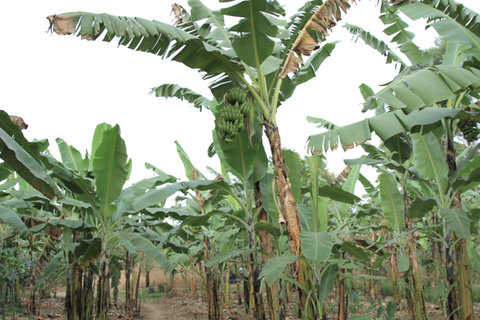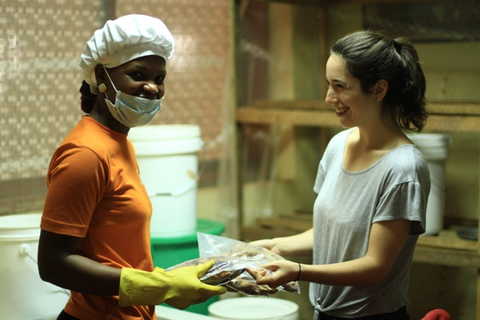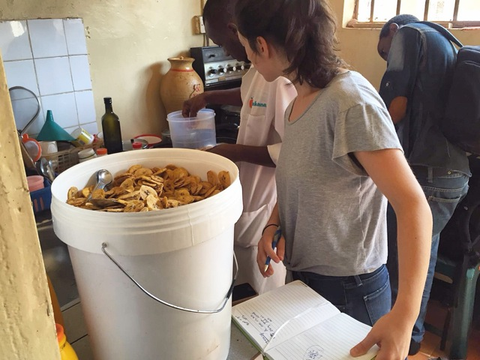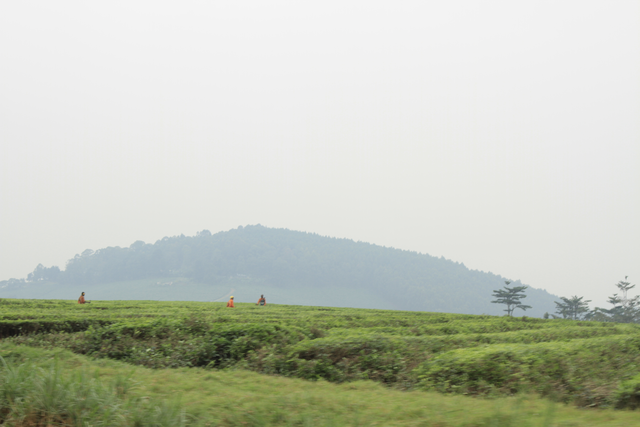Uganda is fondly referred to as The Pearl of Africa. The source of this name is up for interpretation - could be its breathtaking views, varying landscapes, kind people, or rich culture.
To us, the name is most indicative of Uganda's abundant resources and fertile land.
A mere hour's drive away from the hustle of Kampala, you can find varieties of plantains, three types of bananas, pineapple, mango, oranges, jackfruit, papaya, guava, avocados, beans, coffee, sweet potatoes, tomatoes, cassava, and more.
All on a single farm of a few acres!
And although Ugandans are proud of their agricultural endowment, its true value remains untapped. The local marketplace is crowded with raw produce - stand after stand of tomatoes in dense market stalls.
With so much competition and repetition, much of the produce goes to waste at the end of the day. And that's just the produce that actually makes it to trading centers.
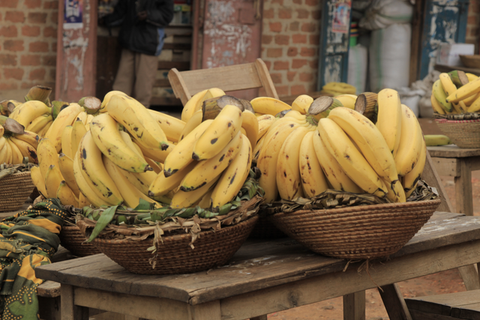 Farmers that don't work on large plantations often rely on their harvests to be picked up by middlemen. As they these traders pass through, they'll purchase a few sacks or bundles, and whatever goes unsold stays rotting on family farms.
Farmers that don't work on large plantations often rely on their harvests to be picked up by middlemen. As they these traders pass through, they'll purchase a few sacks or bundles, and whatever goes unsold stays rotting on family farms.
While there are cases of consistent buyers and opportunities for export, a great deal of exported material is sent out of the country raw - allowing all of the value to be created in the importing countries.
This is not only an issue in that Ugandans miss opportunities to make use of their hard earned harvests, but also because without strong value chains, the economy cannot effectively address unemployment and businesses stagnation.
Given that income is historically insecure, Ugandans are extremely entrepreneurial - almost every Ugandan has a side business or agricultural project.
Many refer to themselves as "weekend farmers." What entrepreneurs fail to see, however, are the many ways they can add value to their products and encourage longer term growth. Instead, you see many entrepreneurs copying the businesses of their neighbors and friends.
The tendency to copy is valid - resources are often limited to innovate and many people in Uganda like what they know, there is a strong traditional culture.
However, the economy as a whole can never hope to grow unless entrepreneurs and companies begin to differentiate, and create businesses that require more than just selling raw product as is.
Once entrepreneurs incorporate methods of value addition - whether through agriprocessing and extending shelf-life or investing in organic certification - they not only have the opportunity to sell a higher value product, they also create job opportunities for others.
Value addition leads to value and supply chain development. Instead of shipping plantains raw to Europe or the US to be processed there, we keep the whole process in Uganda.
Creating a market for finished product allows Ugandan companies to export higher priced goods. Value-added exports inject more money into the Ugandan economy, as opposed to other countries buying the cheap materials and selling the value-added goods for value-added prices.
Local value addition creates a need for local extension services, food sciences, packaging, and every other step along the preparation process. As Uganda develops supply chains internally, there are imminent job and business opportunities.
By encouraging creative and high-quality supply chains, we also attempt attract the youth population to the potential of the agricultural sector, to see beyond the boring or antiquated views of farming.
In our view, if youth are exposed to farming as a business and a crucial piece of a growing and exciting industry, we can shift perspectives and draw youth to the vast agricultural sector (undoubtedly the largest sector of the economy) - avoiding further urban crowding, unemployment, and sustainability for future generations.
Certainly, this all takes time, and we play a small part, but we are committed to challenging and transforming the way supply chains currently operate.
We refuse to remove Uganda's rich resources to be turned into value in other countries - we instead choose to be patient, and grow the supply chains organically in-country.

This is what sets Amazi apart, and this is what inspires us to keep bringing goodies from The Pearl of Africa to you!
